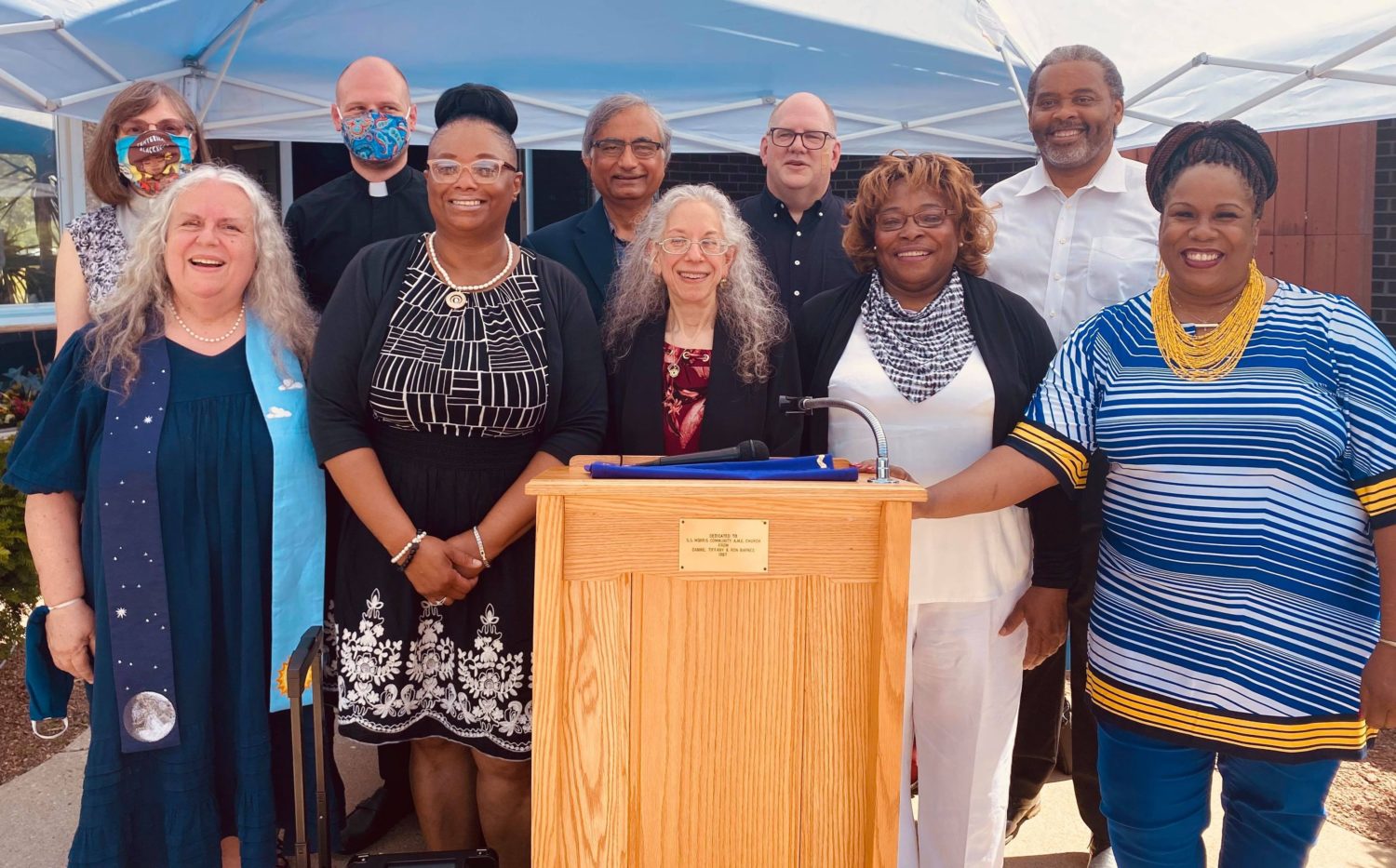
“The United States has a troubled history of voter suppression. Prior to the passage of the United States Act of 1965, many states used policies like poll taxes and literacy tests to prevent African Americans from voting,” said Rev. Karla Garcia, pastor of S.S. Morris Community AME Church on Madison’s east side. “The oppressive strategies continue to plague our country by denying citizens their right to vote, which is guaranteed by the U.S. Constitution.
“We stand against those evil and oppressive methods to expose the truth,” she added. “We will remain united in fighting against voter suppression by speaking the truth and by encouraging others to be empowered to speak up also.”
Rev. Garcia and other S.S. Morris parishioners hosted a press conference June 9 outside of S.S. Morris Church where leaders of a broad cross-section of Wisconsin’s faith communities came together to denounce what they called “egregious anti-voter bills that are currently circulating in our state legislature.”
The Wisconsin State Senate approved bills Wednesday that will restrict access to absentee voting and create new penalties for violating election law. The bills now head to the Republican-led Wisconsin State Assembly. If passed there, which is expected, they would head to the desk of Governor Tony Evers, who has signaled that he would veto the legislation.
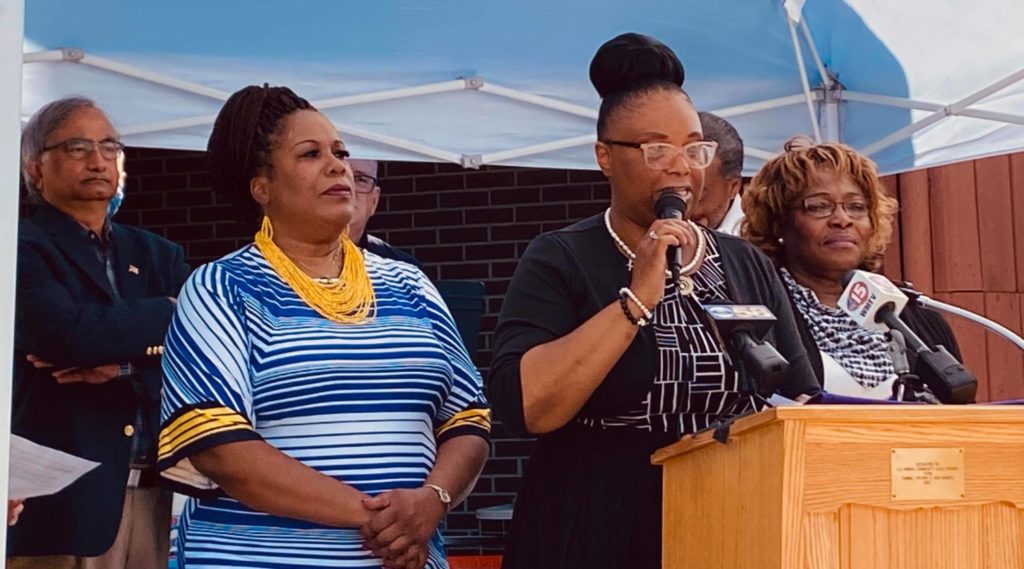
Speakers at the event included Rev. Walter Lanier, senior pastor at Progressive Baptist Church of Milwaukee; Masood Akhtar, founder and president of We Are Many – United Against Hate; Rev. Dan Schultz, Stewardship of Public Life Commission of Wisconsin Council of Churches; and Rabbi Bonnie Margulis, executive director of Wisconsin Faith Voices for Justice.
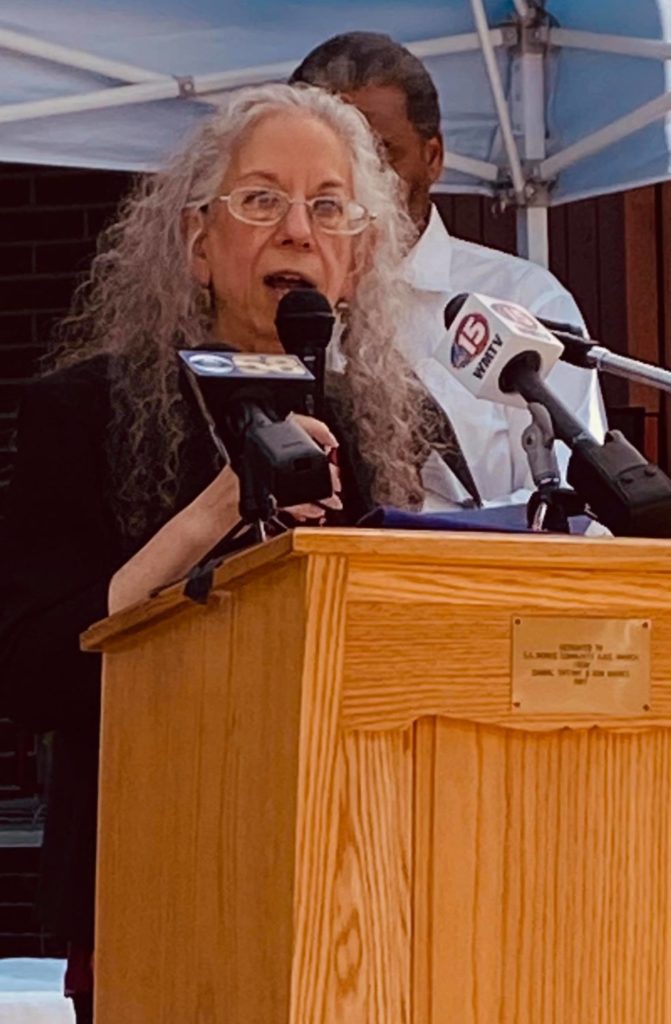
Margulis noted that we saw “one of the largest voter turnouts and one of the most secure elections” in history in Wisconsin last November during the pandemic.
“Sadly, there are those in our leadership who saw this record turnout as a threat, rather than as a victory for our democracy,” she said. “Their response has been to introduce a series of bills into the state Legislature that are designed to do nothing less than suppress the votes.”
Margulis said that 17 faith organizations and 88 clergy and faith leaders of all different faiths signed on to their statement in opposition to these bills, calling upon elected representatives to support equitable access to the ballot box for all eligible voters.
“As leaders of the faith community, we deplore all efforts to erect barriers to people’s right to vote,” she said. “Our nation is strongest when we stand together. We call on our elected officials to adopt the principles of democracy as outlined in our statement as they proceed in the spirit of inclusion and equality.”
Rev. Lanier, who serves as director of community engagement and student resources at Milwaukee Area Technical College and chairman of the religious leaders caucus at Milwaukee Inner-city Congregations Allied for Hope (MICAH), said that we have “two Americas.”
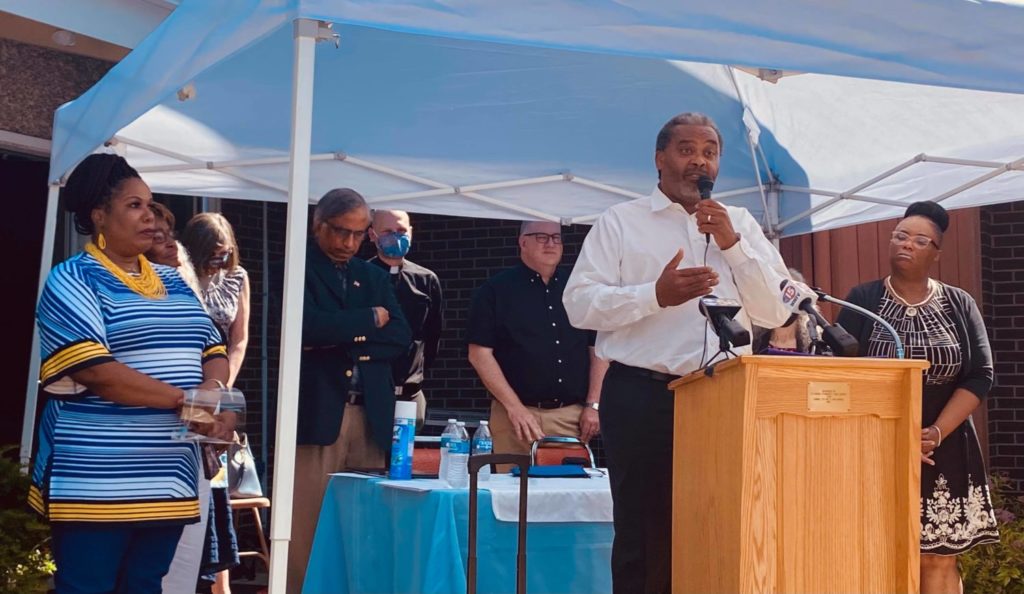
“There’s the America that was and there is the America that can be,” he said. “The America that was … was founded in the Constitution that protected and codified slavery and voting for very few – none for the Black, for the red, for the women. None for those without money. People were willing to kill for the America that was. We saw that desire manifest most particularly on Jan. 6 in the nation’s capital where people were ready to kill for the America that was.
“Then there is the America that can be … that has not yet arrived,” he continued. “We find it in the aspirations of so many that abolished slavery, that granted equal protections under the law, that provided rights to vote. It was best typified in the roads of the Baptist preacher Dr. Rev. Martin Luther King in 1963 when he said, ‘I Have a Dream.'”
Rev. Lanier referenced the article “How Democracy Dies at the Ballot Box” from the New Republic.
“Exhibit A of the death of democracy was the Wisconsin Republican state lawmakers and their push to hold an April 2020 election in the midst of a pandemic,” Lanier said. “He spoke of those actions in our state at the time as the kind of hyper-partisan calculus that now threatens the foundational definition of Democracy – free and fair elections.
“And, yes, there are those who are willing to die for the right to vote who came out in numbers to vote in that election,” he continued. “Wisconsin needs to get it right. It’s the 21st century. It’s time to move the state forward and bridge divides rather than exacerbate them with legislation that both divides communities and threatens the ballot. We are here in celebration of and pushing for and giving voice to the America that can be … opening up the ballot box as broadly as it possibly can be and understand that those who are seeking to do otherwise are in alignment with a frayed, fractured and flawed past.”
Akhtar said that Republicans are making it “harder and harder to vote” even though there is “no evidence of voter fraud.”
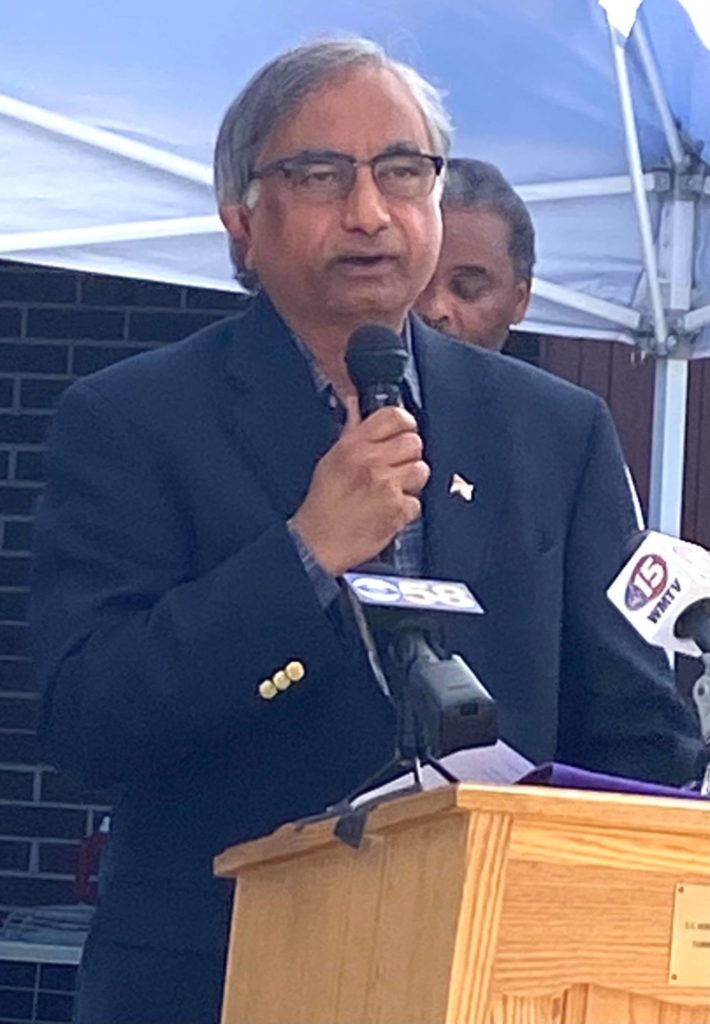
“In fact, there are numerous studies and surveys done that show the opposite is true,” he said. “Election fraud is extremely rare. So the question becomes: What are the Republicans of today afraid of? According to the Pew Research Center, the minority will become the majority by 2050. To me, this is one of the major problems for them. So they are focusing on some of the following strategies to win future elections.”
Akhtar listed off voter suppression, political gerrymandering, appointing longtime conservative judges on the Supreme Court in support of their strategy.
“In doing that, they do not want to annoy their base,” he said. “Also, their base attacked our Democracy on Jan. 6. Imagine for a second that that attack was carried out by Islamic State or by Al-Quaeda. I say that because I am a member of the Muslim community.
“Every American citizen has an equal right to vote. Today, our clear message to these proud citizens is that we are here to fight for your right,” he added. “We will not listen to anybody unless we achieve our goal. Ladies and gentlemen, our problem is not voter fraud; our problem is voter suppression.”
The religious leaders took questions from the crowd at S.S. Morris, one of them asking if they were optimistic they could make headway on this issue in a state that was so heavily politically gerrymandered.
“Wisconsin was quoted in that story as a ‘crumbling Democracy’ and that’s not who the state has been and that’s not who we really want to be,” Rev. Lanier said. “So it’s really on the citizens to speak up and be advocates individually and collectively, join advocacy groups, talk to their legislators, talk to the House [Representatives] and talk to the senators and really raise our voices in a healthy narrative.
“It’s all about sustained organizing and mobilizing and not taking a step back and really not taking a break,” he added. “Evil never sleeps so the righteous have to continue to move forward and be mobilized and organized.”



